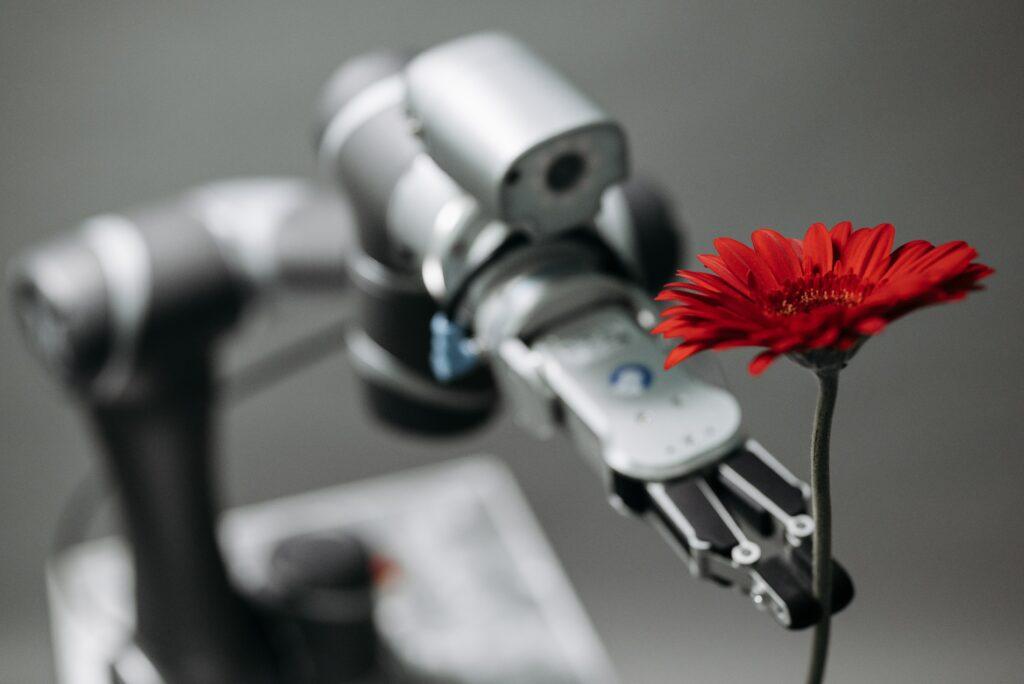Our planet is quickly changing—unfortunately, it’s not for the better. The climate isn’t as stable as it used to be, and we’re experiencing unprecedented floods, droughts, and other natural disasters. All of these problems are not new, but they need newer and newer solutions.
As technology advances, we’ve seen its effect on commerce. We can even start crypto businesses now! It’s all thanks to data and artificial intelligence.
But what if we can use AI to save our natural planet? What if we used it to push corporate sustainability forward? What if AI is the answer we have all been desperately hoping for?
While it might sound too good to be true, AI is actually already helping us combat the environmental issues we’re currently facing. Here’s how:
- AI Encourages Soil Conservation
Soil degradation is one problem we tend to ignore, but it significantly affects our ability to adapt to and survive climate change.
Did you know it takes a millennium to generate three centimeters of topsoil? In contrast, soil degradation happens much faster, especially when you add deforestation, erosion, chemicals, and global warming into the mix.
It’s a good thing farmers and scientists nowadays are harnessing AI to help conserve our soil, along with sophisticated algorithms, robotics, and drones. Even startups are making agricultural apps that assist farmers in identifying nutrient deficiencies in their soil.
Furthermore, farmers are also using machine learning to forecast the ideal times to sow, water, and harvest crops. They’ll need fewer pesticides and fertilizers that degrade the soil when they have accurate predictions.
- AI Helps Predict Natural Disasters
One of AI’s most significant achievements so far is its ability to predict natural disasters. These algorithms are used to forecast future events after being trained to read and analyze historical data. We see this in China, where they’re perfecting new AI systems to predict earthquakes much quicker than current technologies.
AI is crucial in this field because it can analyze simulations and real-time data of weather events and disasters in a region. This information can identify vulnerabilities and improve disaster preparation, provide early warning, and prioritize response through the coordination of emergency information capabilities.
Soon enough, we might be able to integrate deep reinforcement learning into disaster simulations to determine the best response strategies.
- AI Aids in Energy Efficiency
Everyone has to do their part when saving the world, including home and building owners. They can manage their energy use and cut monthly expenses thanks to the Internet of Things and smart devices.
Specific rooms in a house or building can modify their temperature settings using smart thermostats. Smart water sprinklers can adjust water usage depending on weather forecasts. Plus, smart security systems can reduce the number of false alarm calls, saving first responders from making gas-guzzling trips.
With all of these smart devices’ automation, connection, and prediction power, home and building owners can reduce their carbon footprint.
More than conservation, smart energy is also about the best time to use energy. Peak energy periods, such as evenings, have higher demand and costs. With your smart devices, you can automate energy use during low-demand hours.
- AI Protects Our Oceans
One way scientists can monitor the health of our planet is through the ocean. The planet’s surface is changing due to ocean acidification, microplastics, and rising CO2 levels.
To protect our oceans, we must constantly explore and monitor them for changes. Nowadays, climatologists and oceanographers use AI technology to operate autonomous marine vehicles at the greatest depths. Businesses and non-governmental organizations are also working on autonomous garbage collection devices that could help eliminate floating debris and plastics.
- AI Promotes Plastics Recycling
One way AI helps us lower our carbon impact is through plastic recycling. Unfortunately, 91% of all plastics produced are never recycled. Instead, most plastics end up in landfills or the ocean, harming marine life.
However, AI might help us resolve this issue. For example, many businesses are already exploring ways to effectively recycle plastics using AI, such as employing it to locate used plastics so they may be recycled rather than thrown away or burned.
- AI Makes Transportation More Efficient
One of the most polluting industries in the world is transportation. Ships, planes, trains, and automobiles contribute to humanity’s massive carbon footprint. So it’s a good thing AI can improve the sector’s cleanliness and safety.
Vehicles with AI capabilities can reduce energy use by choosing the most energy-efficient routes. There are already self-driving cars on our roads, and fully autonomous vehicles that don’t need human interaction might not be far behind.
- AI Evaluates The Efficacy of Action
AI allows scientists, officials, and policymakers to take a closer look at the existing environmental conditions and identify where solutions can hit the mark and where they might miss. Of course, it’s counterproductive to invest time and resources in subpar solutions. However, that is very likely given the complexity of climate change and adaptation.
With diminishing resources and increased threats, future decisions regarding where to focus our efforts will be difficult. These choices will eventually determine life and death, so we’ll need quick thinking and accurate data.
Enter AI. It will be our most useful tool when evaluating our options and predicting their effects.
Artificial Intelligence Can Help
Today’s environmental issues are by no means simple or easy to tackle. All the problems we face are global in scope and date back many years. Finding solutions will take time, but artificial intelligence has definitely emerged as a useful tool. There is hope for the future as we develop this technology in the coming years.
For more insights on technology, check out Le Crab.


